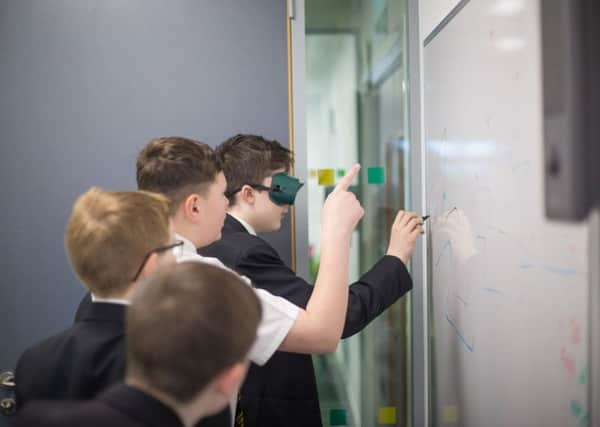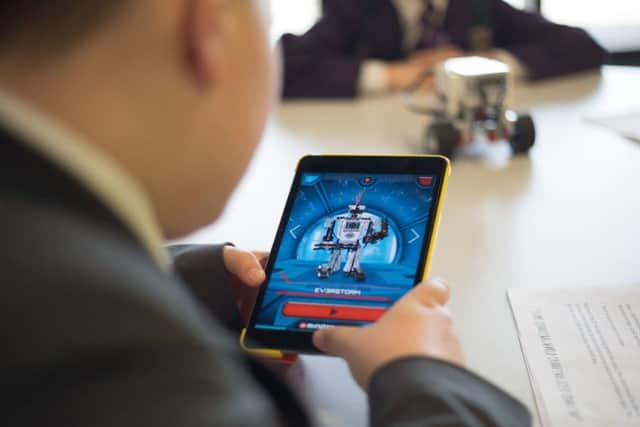Teenagers visit Sunderland University to take part in unusual workshops for Brain Awareness Week


Well sixth form students got the chance to find out for themselves.
The teenagers were visiting the University of Sunderland as part of Brain Awareness Week, where they got the chance to take part in some rather unusual workshops.


Advertisement
Hide AdAdvertisement
Hide AdThe idea behind the event was to allow students to learn about the different parts of the brain and how they work.
Dr Amy Pearson, Lecturer in Psychology at the University of Sunderland, said: “Students got to record brain activity and experienced how they might view things if they had damage to the visual cortex in the brain, so that the world appears upside down.
“They also experienced what it might be like to gain an extra limb using an illusion known as the rubber hand illusion.
“It was a lot of fun and everyone seemed to enjoy it.”


Brain Awareness Week (BAW) is a global campaign to engage and educate the public on the advances and advantages of brain research.
Advertisement
Hide AdAdvertisement
Hide AdDr Helen Knight, Lecturer in Psychology at the University, said: “Students were able to measure the brain’s electrical activity as it happens, providing an appreciation of how complex the human brain is, but in an accessible way.
“They even got the chance to stick electrodes to their friends’ - or a lecturer’s - head.”
Dr Jon Rees, Senior Lecturer in Psychology, added: “The students really enjoyed the Brain Awareness Week activities - and we enjoyed having them too.”


The event was part of a busy week for young people visiting the University.
Advertisement
Hide AdAdvertisement
Hide AdPupils from schools across the area, including Thornhill School and
Kepier School, had fun taking part in the annual Science and Technology Challenge Day.
The event aims to encourage pupils’ interests in science, technology, engineering and maths – or STEM – subjects.


And it seemed to have worked.
Michaela Robinson, science teacher at Kepier School, said: “They absolutely loved it.
Advertisement
Hide AdAdvertisement
Hide Ad“They got the chance to take part in all different types of experiments and tasks.
“On the task where you had to programme a robot, one of our girls just picked it up and did it straight away, without the need for any instructions.
“The sessions were so good we were hoping to hold some at the school in the future.”